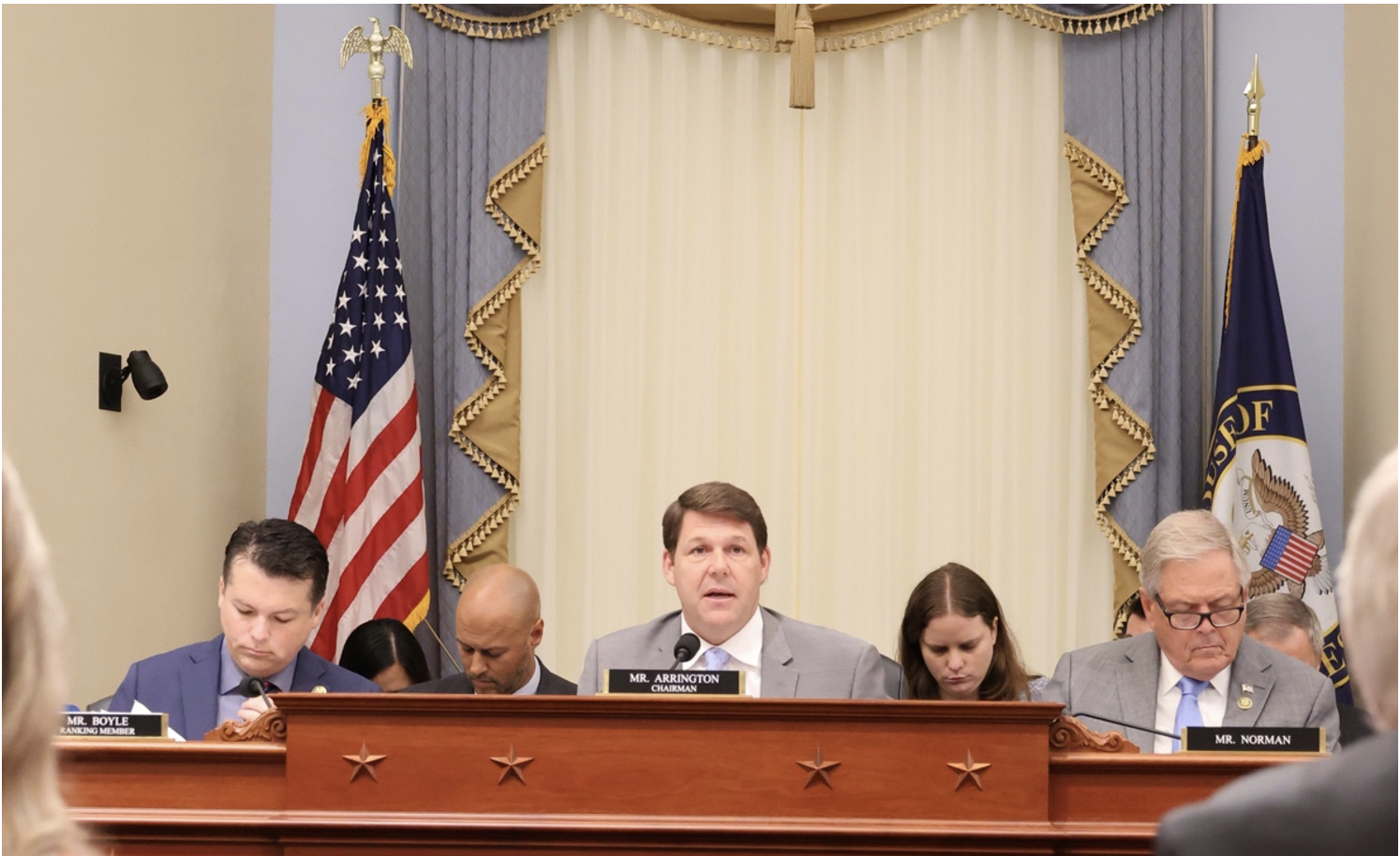Chairman Arrington Delivers Opening Remarks at “Breaking Up Health Care Monopolies: Examining the Budgetary Effects of Health Care Consolidation” Hearing
Washington, D.C.-Today, House Budget Committee Chairman Jodey Arrington (R-TX) delivered opening remarks at the Committee hearing titled “Breaking Up Health Care Monopolies: Examining the Budgetary Effects of Health Care Consolidation.” This hearing is focused on the budgetary effects of increasing health care consolidation and exploring policy solutions to enhance competition, with the objective of reducing health care costs and expanding patient choices.

Click HERE to watch Chairman Arrington’s opening remarks.
Chairman Arrington’s remarks as delivered:
“This is a very important topic and important to me personally. Our national debt is approaching $35 trillion. These are stunning statistics and should be sobering for every American. We're adding $8 billion to the debt every day, our gross debt to GDP is over 123%, which is higher than it was when we were fighting a World War, and we're now in relative peace and prosperity. We're in a bad way, in terms of our nation's fiscal health, and it is rapidly declining.
Even worse than that, so far this year, we're paying almost 60 cents on the dollar just to service the debt. That's the interest on the debt which this year will exceed what we spend on all of national defense. It there also payments thus far this year. Our interest payments to date this year are more than we spent on Medicare, as well as our national security for this great nation. It is hard to believe.
To Reverse the Curse, we must address the biggest driver of our debt: federal health care spending. The Congressional Budget Office projects that spending on major health care programs will nearly double and grow from $1.7 trillion in 2024 to $3.2 trillion in 2034, three times larger in 10 years. Federal health care spending will be more than what we spend on national defense.
National health expenditures, which include everything from patient out-of-pocket costs to federal and state spending on major health care programs, are projected to grow faster than our economy over the next decade rising from four and a half trillion, which were 17% of total economic output, to 20% of our economic output or GDP, and would be over $7 trillion. Healthcare spending is expected to grow at 5.4% over the next 10 years, while GDP is projected to grow at 4.6.
Simply put, this isn't sustainable for the federal budget, it's not sustainable for patients, nor is it sustainable for our taxpayers. This hearing today is important. We're going to focus on one of the key issues plaguing our broken health care system and driving increased federal spending, which is increased consolidation in health care markets.
Big medicine consolidation across healthcare markets - ranging from hospitals purchasing independent physician offices, to insurance companies acquiring pharmaceutical benefit managers and even pharmacies themselves down the supply chain.
The data spells out a troublesome picture of the current state of health care markets and the impact of consolidation on spending. In fact, CBO stated that consolidation has increased federal health spending and costs for patients while limiting their choices and decreasing patient access to quality care.
There were over 1000 hospital mergers between 2002 and 2020. And research has revealed the average price of hospital services increased in that period of time by $521. after hospital mergers occur. Additionally, 41% of physicians are now vertically integrated with a hospital or health systems, at an increase of 12% over 10 years. In cancer care alone, over 700 independent cancer clinics were acquired by hospitals over the period of 2008 to 2020.
The cause and effect of this is clear. Prices for physician services in areas with high market concentration are between statistically 14% and 30% higher than in areas with less consolidation. In the prescription drug supply chain 79% of all drug claims are now processed by three pharmaceutical benefit managers all of which are vertically integrated into large health insurance companies. This vertical consolidation which some will say is greater scale, greater efficiency bringing costs down is shifting incentives and increasing drug cost for Americans.
The House Budget Committee and the House Republican Conference have been leading the way to combat healthcare consolidation through policies in our "Reverse the Curse" balanced budget, such as site neutral payment reform, which is a Democrat and Republican idea. I think it emanated with President Obama. We agree with it. Equalizing payments for the same service through Medicare site neutral reform, while ensuring our rural providers are unaffected is not only common sense, but it would save taxpayers over $150 billion in the 10-year budget window.
More importantly, this policy would end the perverse incentive, that's leading to hospitals acquiring independent physician offices, leaving the market with less competition patients with fewer choices, and then most importantly, our form would ensure seniors will pay less out of pocket cost, and we believe that is the bottom line here.
In terms of our success, lastly, the House Republican Lower Cost More Transparency Act passed the House in December, that only includes transparency for forms to improve health care markets. It also included a site neutral payment for part B, physician administer drugs. We are moving in the right direction, in my opinion. As chairman, I've made it clear this committee takes its fiduciary duty to our taxpayer seriously, both Republicans and Democrats, and this is why we're going to examine the effects of rising consolidation on the budget and discuss reforms necessary to reverse this trend, restore market competition, reduce health care spending, ultimately, for the American people.
That's what we want. More access and lower costs. Nobody can afford health care at this point, and I know we're all working towards that stated objective.”


